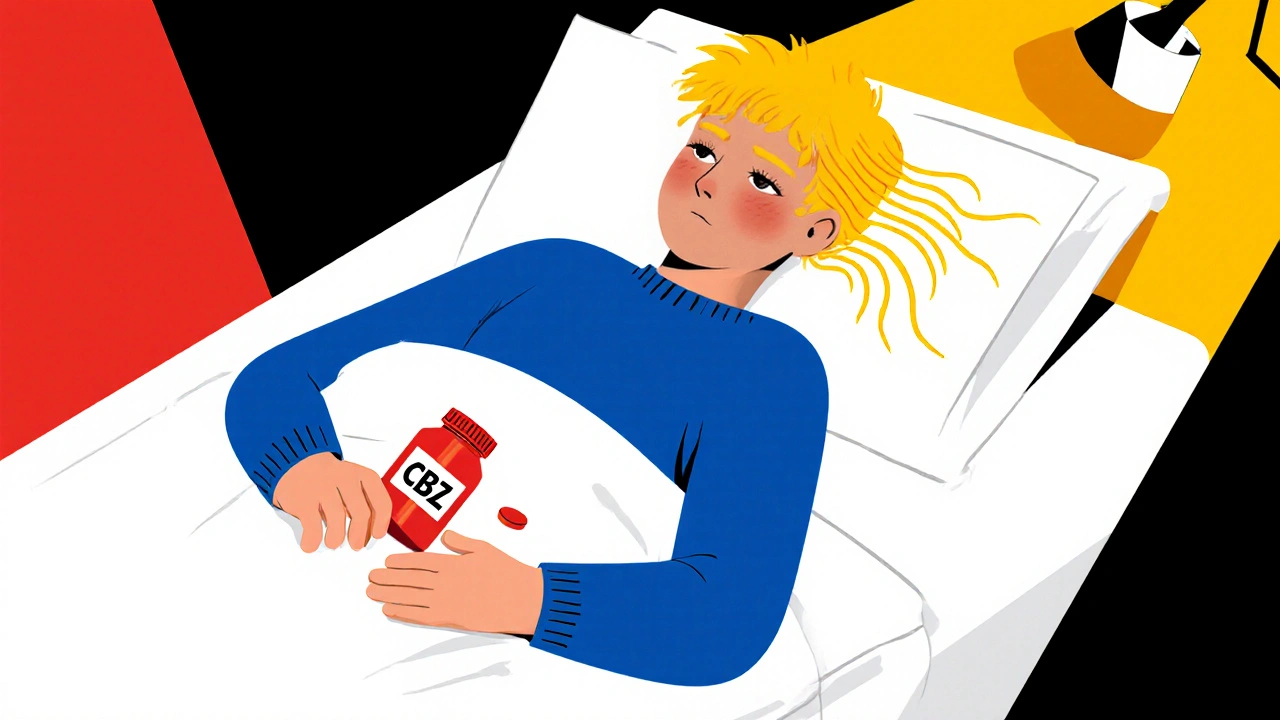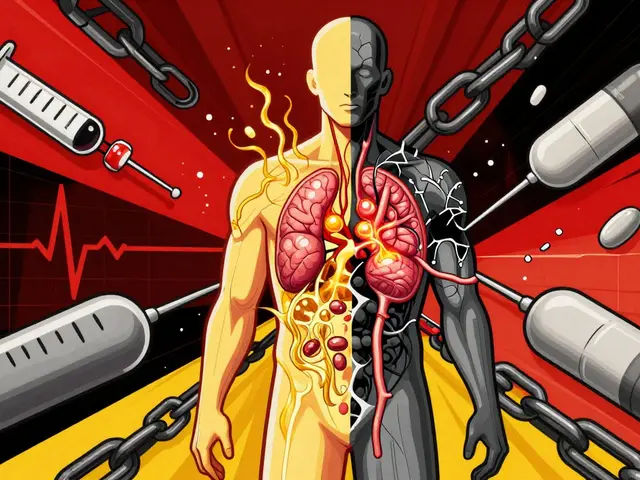Carbamazepine Side Effects: What You Need to Know
When you take carbamazepine, a seizure and nerve pain medication often used for epilepsy and bipolar disorder. Also known as Tegretol, it works by calming overactive nerves in the brain. But like all strong medications, it doesn’t come without risks. Many people take it without issues, but others face side effects that can be mild or, in rare cases, life-threatening. If you’re on this drug, you need to know what to watch for—not just the obvious stuff like drowsiness, but the hidden dangers too.
Drug interactions, how carbamazepine reacts with other medicines are a big deal. It can make birth control fail, weaken blood thinners, or boost the effect of antidepressants like amitriptyline. It also speeds up how your liver breaks down other drugs, so your doses might not work right anymore. If you’re on multiple meds, talk to your doctor before starting or stopping anything. Liver function, how your body processes carbamazepine matters too. Some people develop liver enzyme changes without symptoms, which is why blood tests are part of routine care.
Then there’s the scary stuff: serious skin reactions, like Stevens-Johnson syndrome or toxic epidermal necrolysis. These are rare—less than 1 in 10,000—but they start with a rash, fever, or blisters. If you notice red, blistering skin or sores in your mouth, stop taking it and get to a hospital immediately. People of Asian descent have a higher genetic risk for these reactions, and doctors often test for the HLA-B*1502 gene before prescribing. Don’t ignore a new rash, even if it seems small.
Other common side effects? Dizziness, drowsiness, nausea, and trouble with balance. These often fade after a few weeks as your body adjusts. But if they stick around or get worse, your dose might be too high. Some people report blurred vision, dry mouth, or weight gain. Others notice mood changes—feeling more depressed or anxious. That’s not normal, and it’s not just "in your head." Carbamazepine can affect neurotransmitters, and that’s something your prescriber should track.
It’s not just about what the drug does to you—it’s about what you do while taking it. Avoid alcohol. Don’t drive if you feel foggy. Stay hydrated. And never quit cold turkey. Stopping suddenly can trigger seizures you didn’t have before. If you need to stop, your doctor will guide you through a slow taper.
Below, you’ll find real-world comparisons and safety guides that dig into how carbamazepine stacks up against other seizure meds like lamotrigine or valproic acid. You’ll see what patients actually experience, how side effects change with dosage, and how to spot trouble before it escalates. This isn’t just theory—it’s what people living with this medication are dealing with every day.

Carbamazepine‑Induced Hair Loss: Causes, Prevention & Management Guide
Learn why carbamazepine can cause hair loss, who’s at risk, and practical steps to prevent or manage thinning while staying on the medication.
read more




